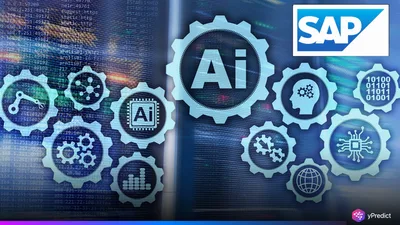
As artificial intelligence rapidly enters mainstream enterprise software, the world is asking a tough question, are software engineers still needed? At first glance, it seems AI could make traditional coding jobs irrelevant. AI tools now write and review code, reducing human workload significantly. But according to top executives at SAP, the opposite may be true.
During a visit to Bengaluru, Thomas Saueressig, Executive Board Member at SAP SE, emphasized that critical tech skills still drive innovation. Speaking at the inauguration of SAP’s new campus, he clarified that AI may boost productivity, but it cannot fully replace human expertise. “There’s still a scarcity of developers and SAP experts,” he said, underlining the persistent demand for foundational skills in engineering and enterprise systems.
Engineers Do More Than Code, They Solve Business Problems
Saueressig noted that the role of engineers is far more than just writing code. They design architectures, conduct code reviews, and lead brainstorming sessions. These tasks require human judgment, collaboration, and critical thinking. “AI tools help, but humans must align technical decisions with business goals,” he said. This is where SAP engineers bring unique value.
AI tools, while impressive, still lack deep domain understanding. For large enterprises, real-world problem-solving requires diverse teams, engineers, business process experts, and industry veterans. SAP promotes this cross-functional collaboration to address complex challenges. At SAP Labs India, this is already the new norm.
AI Software Development Is Driving New Job Roles
AI isn’t eliminating jobs, it’s changing them. Saueressig pointed out that AI software development opens up new roles like AI engineers and prompt engineers. “We see a huge rise in AI-related job openings across the IT industry, especially on the customer side,” he shared. SAP’s hiring strategy now focuses heavily on AI-first roles, blending core programming with machine learning skills.
Over 90 percent of SAP developers already use AI tools daily. More than 75 percent have received specific training in AI development. The company’s internal systems now embed AI into nearly every workflow. Still, critical tech skills remain necessary to ensure these tools are used correctly and responsibly.
Deep Industry Expertise Makes AI Valuable
Saueressig stressed that success in AI depends on context. “General-purpose language models are fading,” he said. Instead, SAP is building proprietary, domain-specific AI that’s trained on real business data. “We leverage insights from over 40,000 customers to create responsible, relevant AI,” he added.
This shift means SAP engineers and tech professionals with industry knowledge will be more valuable than ever. As AI tools become part of everyday software, domain expertise helps companies apply them effectively. It’s not just about using AI, it’s about understanding when, where, and how to use it best.
SAP’s AI-First Strategy Starts in India
SAP’s new campus in Bengaluru represents a commitment to innovation in India. Spread over 41 acres, it will eventually host 15,000 employees. Currently, 3,200 employees have already moved in, with 4,500 more coming in the first phase.
Sindhu Gangadharan, SVP and MD of SAP Labs India, added that SAP’s vision is AI-first and Suite-first. “From lead-to-cash to workforce management, our core product teams are based in India,” she said. Every developer in SAP Labs India is now expected to contribute to AI systems. AI is not a department anymore, it’s part of everyone’s job.
AI Is the New UI, But It Still Needs Humans
Saueressig summed up the company’s vision by stating, “AI will be the new UI.” According to him, there will be no business process without AI in the future. But that doesn’t mean AI works in isolation. “AI is only as good as the data it receives,” he explained. This reinforces why critical tech skills are essential. Engineers must ensure the data, systems, and goals behind AI remain aligned and trustworthy.
Even as automation reshapes workflows, human creativity and judgment remain central. The fusion of AI tools with deep domain knowledge will be the foundation of future enterprise software. SAP’s approach makes it clear, AI is a partner, not a replacement.






